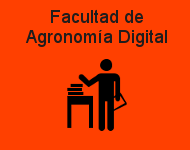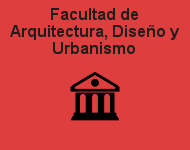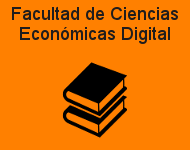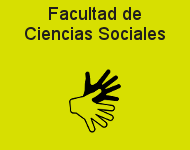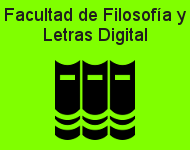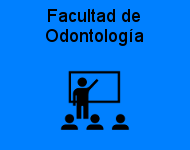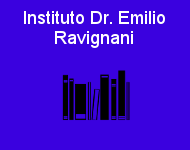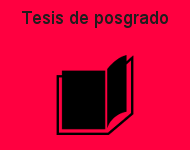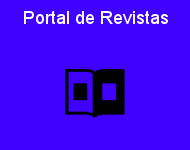Circuitos segmentados de consagración académica: las revistas de Ciencias Sociales y Humanas en la Argentina
Segmented circuits of academic recognition: the journals of social sciences and humanities in Argentina
Beigel, Fernanda; CONICET- INCIHUSA/UNCuyo
Salatino, Maximiliano; CONICET- INCIHUSA
Salatino, Maximiliano; CONICET- INCIHUSA
En:
Información, cultura y sociedad; núm. 32 (2015); 11-36
Editor:
Universidad de Buenos Aires. Facultad de Filosofía y Letras. Instituto de Investigaciones Bibliotecológicas
Fecha:
2015-06-01
Tipo de documento:
info:eu-repo/semantics/article
info:eu-repo/semantics/publishedVersion
info:eu-repo/semantics/publishedVersion
Formato:
application/pdf
Idioma:
spa
Temas:
Sistema Académico Mundial; Acceso abierto; Revistas científicas; Ciencias sociales; Evaluación de la investigación; Argentina
Temas 2:
World-Academic System; Open Access; academic journals; research evaluation; Social Sciences; Argentina
Contenido:
En otros estudios, hemos analizado cómo la “periferialidad” científica ha devenido en un fenómeno cada vez complejo, que no se restringe a una dinámica espacial-nacional y mal puede explicarse con el concepto de “imperialismo académico”. El Sistema Académico Mundial se fue estructurando en circuitos, a través de un triple principio de jerarquización, construido históricamente en la intersección de la institución de origen, la lengua y la disciplina. Así, se fue jerarquizando el circuito autodenominado “mainstream”, sobre la base de la diferenciación entre científicos internacionalizados e investigadores restringidos a circuitos nacionales o “marginales”. En este trabajo, nos enfocamos en el universo de revistas de ciencias sociales y humanas en Argentina con el fin de profundizar el estudio de la dinámica disciplinar de ese principio de jerarquización. En la primera parte, proponemos una clasificación de circuitos de circulación de acuerdo a su poder de consagración académica, para ir más allá de una mera medición de “visibilidad”. Luego, desarrollamos un análisis de la base de datos que hemos construido con todas las revistas argentinas para determinar en qué circuitos circula ese conocimiento. Observamos, en particular, un circuito local muy fuerte, con poca o nula repercusión internacional, constituido por revistas editadas en papel, sin indexación y con una distribución restringida.
Contenido 2:
In other studies we have analysed to which extent scientific "peripherality" has become an increasingly complex phenomenon that is not restricted to national dynamics and cannot be explained with the concept of "academic imperialism." The World Academic System (SAM) was structured in the last four decades through a triple principle of hierarchy that created segmented circuits, historically constructed at the intersection of the institution of origin, language and discipline. Thus so-called "mainstream" circuit was based on the distinction between internationalized scientists and researchers restricted to domestic or "marginal" circuits. In this paper, we focus on the world of social science journals in Argentina in order to deepen our insight on the discipline dynamics of that principle of hierarchy. In the first part, we describe the circuits according with their power of “international” recognition, in order to go beyond a mere measurement of "visibility". Then, we develop an analysis of the database that we have built with the universe of Argentine journals to determine how this knowledge circulates. We particularly observe a strong domestic circuit, with little or none international impact, consisting of non- indexed journals, published only in paper, resulting in a very restricted distribution.
Identificador(es):
http://revistascientificas.filo.uba.ar/index.php/ICS/article/view/1342
ISSN 1514-8327 (impreso)
ISSN 1851-1740 (electrónico)
ISSN 1514-8327 (impreso)
ISSN 1851-1740 (electrónico)
Derechos:
info:eu-repo/semantics/openAccess
Authors publishing in this journal acknowledge the conditions below:Authors retain the copyright of their work while they transfer the right of the first publishing to the journal, under the Creative Commons Attribution-Noncommercial-No Derivative Works 3.0 Unported Licence, which allows third parties to reproduce them under the condition that express mention is given to the author and to its original publication in the journal.Authors may enter into other contractual and independent arrangements for the non-exclusive distribution of the version of the article published in this journal (for instance, it can be published in an institutional repository or in a book). In any case, an express mention should be given to its first publication in the journal.It is permitted and encouraged to publish online the articles (for example, on institutional or personal pages).
Authors publishing in this journal acknowledge the conditions below:Authors retain the copyright of their work while they transfer the right of the first publishing to the journal, under the Creative Commons Attribution-Noncommercial-No Derivative Works 3.0 Unported Licence, which allows third parties to reproduce them under the condition that express mention is given to the author and to its original publication in the journal.Authors may enter into other contractual and independent arrangements for the non-exclusive distribution of the version of the article published in this journal (for instance, it can be published in an institutional repository or in a book). In any case, an express mention should be given to its first publication in the journal.It is permitted and encouraged to publish online the articles (for example, on institutional or personal pages).
Descargar texto:  1342.oai
1342.oai
 1342.oai
1342.oai Cita bibliográfica:
Beigel, Fernanda; CONICET- INCIHUSA/UNCuyo ; Salatino, Maximiliano; CONICET- INCIHUSA (2015-06-01). Circuitos segmentados de consagración académica: las revistas de Ciencias Sociales y Humanas en la Argentina. (info:eu-repo/semantics/article). En: Información, cultura y sociedad; núm. 32 (2015); 11-36. Instituto de Investigaciones Bibliotecológicas. Facultad de Filosofía y Letras. Universidad de Buenos Aires. [consultado: ] Disponible en el Repositorio Digital Institucional de la Universidad de Buenos Aires: <http://revistascientificas.filo.uba.ar/index.php/ICS/article/view/1342>



